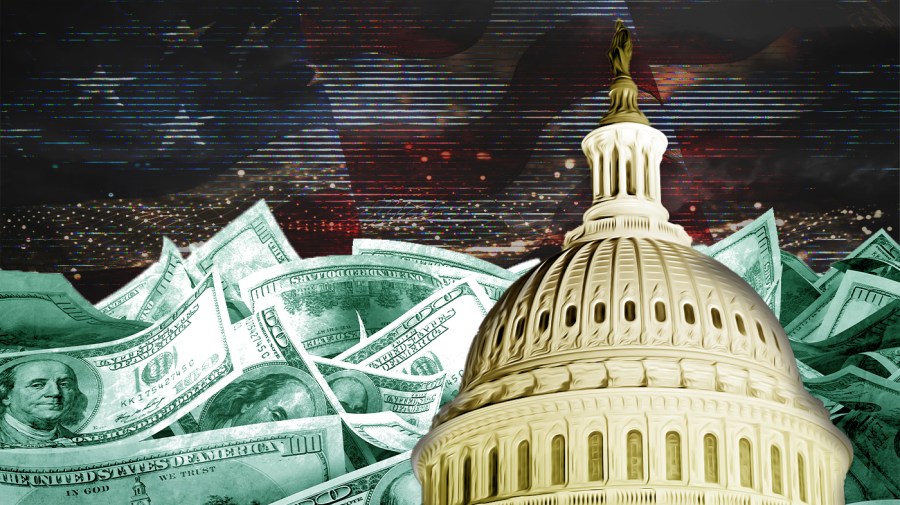
Donald Trump will soon be returning to the White House after waging another victorious campaign against business-as-usual in Washington, including America’s broken foreign policy consensus. But if the incoming Trump administration is serious about ensuring that U.S. foreign policy puts America first, they shouldn’t overlook the murky world of think tank funding, where businesses and foreign interests buy influence over key nodes in the foreign policy-making apparatus with little scrutiny — often shifting U.S. policy to their own benefit, at Americans’ expense.
In July, the Department of Justice indicted Sue Mi Terry, a leading expert on the Korean Peninsula who held senior positions at prestigious think tanks like the Wilson Center and the Council on Foreign Relations, on charges of acting as a foreign agent for South Korea without registering under the Foreign Agents Registration Act.
For more than a decade, Terry allegedly fed Korean intelligence officers information in exchange for luxury goods and funding. Gregory Craig, a former White House Counsel — who himself faced FARA charges that were eventually dismissed — claimed that Terry’s actions are simply what it takes to “succeed in the think-tank universe.”
Craig is half-right: It certainly is the norm, not the exception, for think tanks to rely on connections with foreign governments and special interest groups. But these entanglements are not just what it takes to succeed — they also have a real effect on the research products and policy recommendations that think tanks produce.
As objective as think tanks claim to be, their funding sources matter. A growing body of evidence suggests that funding often comes with strings attached, leading to censorship, perspective filtering and, in rare cases, even outright “pay-for-research” arrangements with donors.
Donors are well aware of these benefits. As a 2014 internal report from the Norwegian Foreign Affairs Ministry noted, “Funding powerful think tanks is one way to gain such access, and some think tanks in Washington are openly conveying that they can service only those foreign governments that provide funding.”
Yet remarkably little is known about think-tank funding. With this in mind, we created the Think Tank Funding Tracker, a publicly searchable database that allows users to explore think-tank funding relationships from Pentagon contractors and foreign government sources.
In the last five years alone, foreign governments contributed $110 million to the top 50 U.S. think tanks. The heftiest sums were doled out by the United Arab Emirates, the United Kingdom and Qatar, who contributed $16.7 million, $15.5 million and $9.1 million, respectively. The top 100 Pentagon contractors donated just under $35 million, led by the likes of Northrop Grumman, Lockheed Martin and Mitsubishi, which provided $5.6 million, $2.6 million and $2.1 million to the tracked think tanks.
Think tanks’ reliance on these special interests is only growing. From 2019 to 2023, the top 50 American foreign policy think tanks reported a nearly 30 percent increase in funding from the top 100 Pentagon contractors. Over that same period, think tanks reported a 36 percent increase in funding from foreign governments — despite no apparent increase in transparency.
Yet the most jarring takeaway from the Think Tank Funding Tracker is what is not in it. Think tanks are not actually required to disclose information about their donors, and 18 of the top 50 foreign policy think tanks in the U.S. do not disclose any information about their funders. The annual revenue of these top “dark money” think tanks combined is a staggering $289 million.
The entities funneling nearly $300 million to these “dark money” think tanks — be they China, Saudi Arabia or a corporation shy of the public eye — are anyone’s guess. To paraphrase former Secretary of Defense Donald Rumsfeld, these are the “known unknowns.”
Whereas foreign agents, lobbyists and even universities have to disclose certain information about their clients and contracts, think tanks enjoy the unregulated veneer of independence. According to Daniel Drezner, a professor of international politics at the Fletcher School of Law and Diplomacy at Tufts, funding think tanks “can be as valuable as spending on lobbyists” precisely because it is less regulated.
Foreign states looking to meddle in American politics have begun secretly exploiting this glaring loophole. The Guardian reported earlier this year that Israel even considered creating a think tank-like nonprofit organization specifically to circumnavigate any disclosure requirements.
This lack of transparency also opens the door for think tank employees to skirt laws such as the Foreign Agents Registration Act, which requires foreign lobbyists to register and disclose their activities. In July 2023, Gal Luft, a dual U.S.-Israeli citizen working as co-director of a foreign policy think tank, was indicted for paying a Trump advisor on behalf of Chinese entities.
As millions of dollars are streaming into the coffers of think tanks from foreign governments and weapons manufacturers, it’s high time to demand more transparency. Conflicts of interest, real or perceived, should be front and center.
Lawmakers should impose regulations that require nonprofit organizations to reveal high-dollar funding sources from corporate and governmental donors. This would build upon existing bipartisan legislation like the Think Tank Transparency Act, introduced by Sen. Chuck Grassley (R-Iowa), and the Fighting Foreign Influence Act, introduced by Rep. Jared Golden (D-Maine), that would require nonprofits to disclose donations from foreign governments.
Think tanks are an integral part of the U.S. policy-making process. Foreign governments and special interests are all too aware of this and are investing heavily in think tanks to garner influence in America. Congress, in turn, must recognize this dynamic and demand much greater donor transparency from the think tanks that wish to influence it.
Ben Freeman is the director of the Democratizing Foreign Policy Program at the Quincy Institute. Nick Cleveland-Stout is a Junior Research Fellow at the Quincy Institute.












